Contents
Guide
The Captain Was a Doctor
Jonathon Reid
The Captain Was a Doctor
The Long War and Uneasy Peace of POW John Reid

Copyright Jonathon Reid, 2020
All rights reserved. No part of this publication may be reproduced, stored in a retrieval system, or transmitted in any form or by any means, electronic, mechanical, photocopying, recording, or otherwise (except for brief passages for purpose of review) without the prior permission of Dundurn Press. Permission to photocopy should be requested from Access Copyright.
Publisher: Scott Fraser | Acquiring editors: Scott Fraser and Rachel Spence | Editor: Michael Carroll
Cover designer: Sophie Paas-Lang
Cover image: John Reid, Sendai Camp 1B, shortly after the Japanese surrender on August 15, 1945. Marjolein de Klerk.
Printer: Marquis Book Printing Inc.
Library and Archives Canada Cataloguing in Publication
Title: The captain was a doctor : the long war and uneasy peace of POW John Reid / Jonathon Reid.
Names: Reid, Jonathon, 1948- author.
Description: Includes bibliographical references and index.
Identifiers: Canadiana (print) 20200278282 | Canadiana (ebook) 20200278444 | ISBN 9781459747210 (softcover) | ISBN 9781459747227 (PDF) | ISBN 9781459747234 (EPUB)
Subjects: LCSH: Reid, John, 1913-1979. | LCSH: Canada. Canadian Army. Royal Canadian Army Medical CorpsOfficersBiography. | LCSH: Canada. Canadian ArmyMedical personnel Prisoners of warCanadaBiography. | LCSH: Prisoners of warJapan Biography. | LCSH: World War, 1939-1945Prisoners and prisons, JapaneseBiography. | LCSH: PhysiciansCanadaBiography. | LCGFT: Biographies.
Classification: LCC D805.J3 R45 2020 | DDC 940.54/7252092dc23

We acknowledge the support of the Canada Council for the Arts and the Ontario Arts Council for our publishing program. We also acknowledge the financial support of the Government of Ontario, through the Ontario Book Publishing Tax Credit and Ontario Creates, and the Government of Canada.
Care has been taken to trace the ownership of copyright material used in this book. The author and the publisher welcome any information enabling them to rectify any references or credits in subsequent editions.
The publisher is not responsible for websites or their content unless they are owned by the publisher.
VISIT US AT
 dundurn.com
dundurn.com
 @dundurnpress
@dundurnpress
 dundurnpress
dundurnpress
 dundurnpress
dundurnpress
Dundurn
3 Church Street, Suite 500
Toronto, Ontario, Canada
M5E 1M2
To the 1,975 Canadian soldiers and two nursing sisters of C Force and their families
The captain was a doctor. Not a captain.
John Reid, The Captain
A poignant sense engulfed him of the one-way flow of time, of the offhand decisions, the slight impulsive mistakes, that could swell and become a mans fate.
Herman Wouk, War and Remembrance
If I weep for Jack, it is for the bright, gay, sensitive person who once was a comrade-in-arms, it is for lost dreams, it is for the inexorable ticking of the clock.
George Pollak, Letter of Condolence, Written on Pearl Harbor Day, 1979
Contents
Foreword
C aptain John Reid, Royal Canadian Army Medical Corps, was a doctor; a doctor who found himself in a merciless place without medicine or equipment, but a doctor who himself embodied compassion. A doctor who when he left Canada for war was expected to return to a stellar career in medicine.
There are two aspects that make his story unique. Firstly, this is a full biography covering his prewar life, wartime experience in Hong Kong and as a POW, and the all-important postwar challenges. And secondly, Reid was the only Canadian officer to travel with the Canadian Other Ranks when they were shipped from Hong Kong to POW Camps in Japan itself. There he fought a war against starvation, cruelty, and rampant disease.
My endeavour here, he noted at one point, is to take back as many men as possible to Canada, whether well or ill, and not to concentrate on complete health. I would rather return five hundred men in various stages of beriberi, which perhaps in future can be cured, rather than to return three hundred men in good health and leave two hundred dead behind.
Reid did his best, but whatever decisions he made, those in his care kept dying. For an intelligent and imaginative man, playing at God must have come at a high cost. His men knew how difficult this was for him. He had to make these decisions, and makeem and makeem and makeem and it was so hard, said Royal Rifles Sergeant Flash Clayton. He didnt have anything to help anybody with, and I can remember when Jimmy Emo died, I can remember [Reid] crying. And when Murray Goodenough died he was eighteen years old. He won the MM [Military Medal] in Hong Kong when he was sixteen. He died in December of forty-three [of catarrh pneumonia] and [Reid] just cried and cried and cried. What can you do?
After almost four long years, the war suddenly ended. And this works description of the struggle within Japan to accept defeat is as good as I have read anywhere. This is a history to be reckoned with.
Reid survived. But his marriage did not. Every single POW from Hong Kong I ever knew was changed by this war, and their families suffered in turn: wives and children; prewar and post. One might cast blame, but a lifetime of study has led me to the conclusion that there are very few true villains in war. The overwhelmingly vast majority of survivors are simply victims. Without the war, there is every likelihood that Reid would have had a stable family life and that stellar career.
Oh, yes, the captain was a doctor, and one who saved many lives in that war. And he was a brave man and a good one, damaged though he clearly was. But to the Canadian soldiers he escorted to Japan, those same soldiers who he guided through such difficult times for so many years, he was much more: to them, it is clear, the doctor was a captain.
Tony Banham, Ph.D.
Hong Kong, July 2020
Authors Note
T his book contains some pejorative and racist language. For the sake of veracity, it has been retained as originally quoted. While acknowledging the Japanese convention of writing family names first, in the case of this book, I have followed the Western practice of given names first, family names second, to which English-speaking readers are accustomed. Imperial measurements, in use at the time of this story, have been retained. However, all place names have been modernized, except in two direct quotes: Wong Nei Chong Gap for todays Wong Nai Chung Gap, page 69; and Chungking for todays Chongqing, page 92.
Finally, it should be noted that prisoner of war (POW) Tokyo No. 5 Branch Camp and Tokyo No. 3 Dispatched Camp (Camp 3D) are one and the same. In Branch Camps, the Japanese Army supplied all housing, food, clothing, and staff. In Dispatched Camps, the Japanese Army only provided staff. Housing, food, and clothing were supplied by the company where the POWs worked. Tokyo No. 5, Reids first camp in Japan, was renamed 3D on August 1, 1943, when Nippon Kokan (Tsurumi) Shipyard took over Dispatched Camp responsibilities.

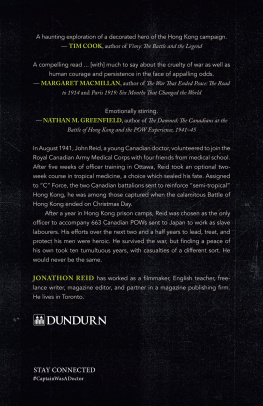
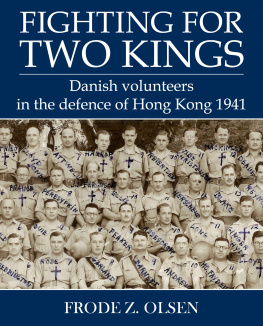
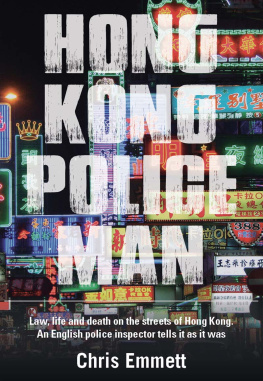


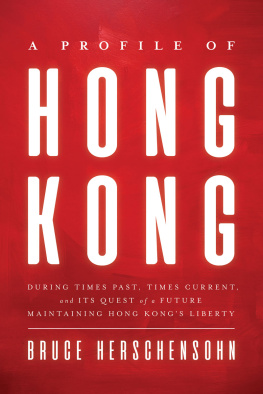
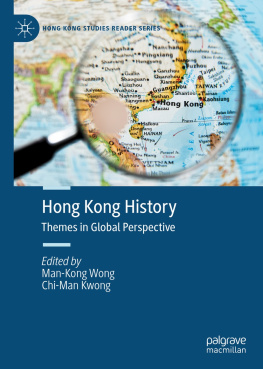
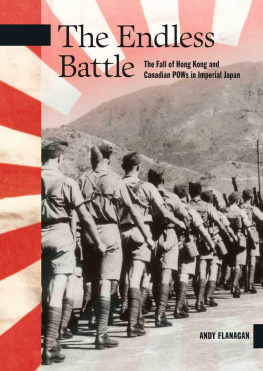


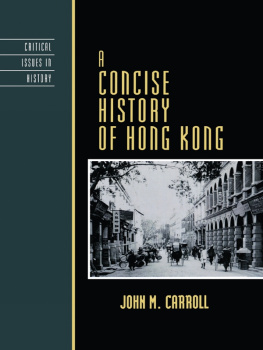



 dundurn.com
dundurn.com @dundurnpress
@dundurnpress dundurnpress
dundurnpress dundurnpress
dundurnpress